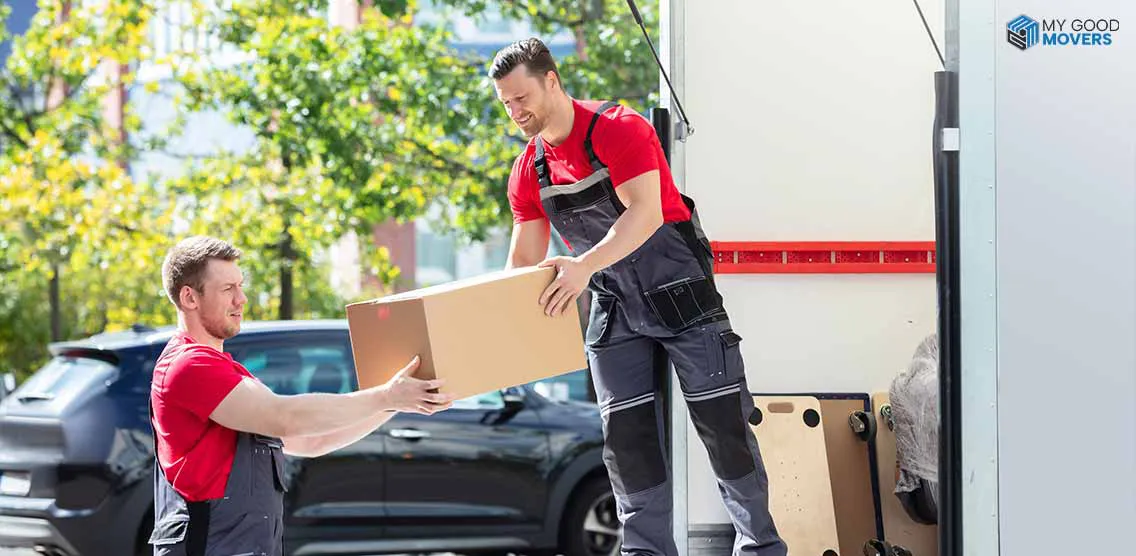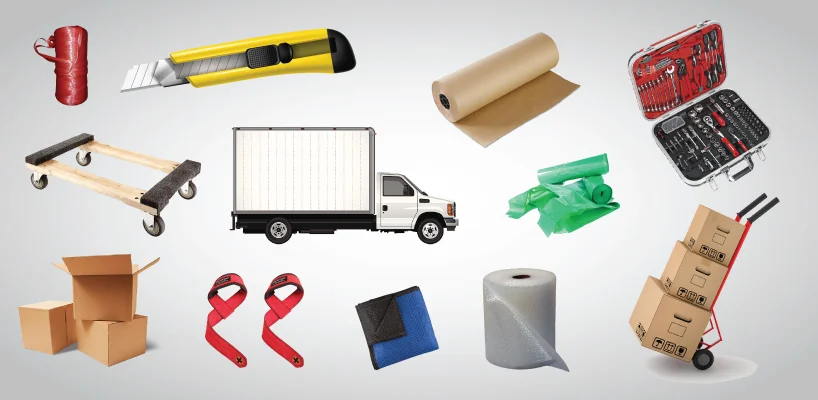Pets are not just animals; they are family.
If you're a pet parent, you know how deeply connected you are to your furry friends, and moving with them isn’t just about packing their toys and food bowls.
It’s about their comfort, safety, and well-being during the entire process.
In fact, moving with pets is a life event that requires a lot of thoughtful planning.
Consider this: approximately 70% of U.S. households have a pet, and many of these households will relocate at least once every few years.
This means millions of pets are involved in moves each year.
According to the American Pet Products Association, pet-related travel expenses have seen a significant rise in recent years, growing by over 10% in the past five years.
This reflects the growing awareness among pet parents about the importance of taking their pets' needs into consideration during a move.
It's not just about finding a new home for yourself—it’s about finding a place that’s just as suitable for your pets.
Whether you're moving with dogs or moving with cats, there’s a lot to think about, from how to prepare them for travel to finding pet-friendly accommodations during your move.
Changing their environment, even temporarily, can be stressful for them. But it doesn’t have to be.
With the right approach and preparation, you can make the moving process smoother for both you and your pets.
Start Planning Early
One of the most important things you can do when moving with pets is to plan ahead.
Moving with pets requires extra care and attention, so it is compulsory to give yourself enough time to prepare.
Why You Can Trust My Good Movers
550+
moving companies
listed
16,000+
customer reviews to help you decide
50+
states covered for moving services
100%
free quotes provided instantly
Why Plan Ahead?
Pets are creatures of habit, and the more you can keep their routine intact during the move, the less stressed they’ll be.
Sudden changes in their environment or routine can cause anxiety, which could lead to health issues or behavioral problems.
That's why it's essential to begin planning early and ensure everything is in order long before moving day.
Checklist of Tasks to Complete Before Moving:
Visit the Veterinarian
This is especially important if you’re moving abroad with pets or moving pets internationally, as different countries have different requirements.
Why You Need to Consult a Vet:
-
Vaccinations and Health Records: Ensure your pet is up-to-date on vaccinations, flea/tick treatments, and any other necessary health protocols before moving.
-
Calming Medications: If your pet gets anxious during travel, your veterinarian can recommend calming medications or sedatives.
-
Parasite Prevention: A vet can provide advice on preventing pests, especially if you're moving to a warmer or unfamiliar environment.
Update Identification
When you’re moving to a new location, it’s essential to update your pet’s identification. Check that your pet’s ID tags are up-to-date with your new address and phone number.
Importance of Microchipping
While traditional collars and tags are helpful, they can fall off or become unreadable over time.
Microchipping provides a permanent form of identification, increasing the chances of being reunited with your pet if they get lost during the move. Microchips are a safe and effective way to track your pet, especially in case of an emergency.
Book Pet Travel Arrangements
Whether you're driving or flying, it’s important to book travel accommodations early.
Some airlines have strict pet policies, and securing a spot early can save you stress closer to the date.

Looking for trusted moving services for your pet-friendly relocation? _ Find the best movers in your area now
Find Pet-Friendly Accommodations During Move
If you're staying in hotels along the way, look for places that welcome pets. There are plenty of options available, so start researching in advance.
Pet-Friendly Hotels:
-
Websites like BringFido and PetsWelcome offer helpful resources to find hotels, motels, and rentals that welcome pets.
-
Make sure to call ahead to confirm the pet policies, as some places charge extra fees for pets.
Research Pet-Friendly Moving Companies
One of the most significant aspects of moving with pets is selecting the right moving company.
If you're moving across states or internationally, you’ll need a company that’s experienced in handling the logistics of transporting pets safely.
Benefits of Professional Pet Relocation Services:
Experience: Pet relocation services specialize in the safe and comfortable transport of pets. They know the ins and outs of regulations, paperwork, and the best methods to travel.
Stress-Free Travel: Some pet-friendly moving companies even offer options where your pets can travel with their own dedicated space, reducing the stress of cramped, shared spaces with other animals.
International Expertise: If you’re moving pets internationally, these companies can guide you through country-specific rules and help with vaccinations, quarantine, and paperwork requirements.

Planning a move with pets? Save up to 20% by getting your free moving quote.
Pet Travel Arrangements: Air vs. Road Travel
Now, it’s time to figure out how you’re going to get your pet from Point A to Point B.
Flying with Pets
Check Airline Pet Policies: Each airline has specific rules and regulations regarding pets. Some airlines allow pets to fly in the cabin, while others may require them to be transported in cargo.
Make sure to confirm with the airline before booking your tickets.
Create a Pet Travel Kit: Pack a small bag with your pet’s essentials, such as food, water, medications, toys, and a blanket.
It’s important to keep your pet hydrated and comfortable during the journey.
Road Travel
Prepare Your Vehicle: If you're driving, ensure that your car is ready for your pet’s needs.
Install a pet seatbelt harness, crate, or carrier that’s well-ventilated and safe for your pet.
Take Regular Breaks: If you're on a long drive, make sure to stop regularly so your pet can stretch their legs and relieve themselves. This is especially important on long-distance moves.

Moving with pets requires special care. _ Browse the top pet-friendly moving companies to guarantee a smooth relocation.
How to Prepare Your Pet for the Move:
Pack Gradually
Begin packing your belongings ahead of time, but do it gradually. This allows your pet to get used to the changes in the home. Do it over a few days rather than packing everything in one day.
Create a Safe Space
Set up a quiet space in your home where your pet can escape from the hustle and bustle of packing. This could be a separate room with their favorite bedding, toys, food, and water.
Introduce the Carrier or Crate
If your pet will be traveling in a carrier or crate, help them become comfortable with it well in advance. Leave the carrier open and place treats, toys, or even their bedding inside.
Maintain Their Routine
Pets thrive on routine, so try to stick to your pet’s usual schedule as much as possible. Keep feeding times, walks, and playtime consistent.
Familiarize Them with the New Place
If it’s possible, take your pet to the new home before the official move. Let them explore the new environment and get used to the smells, sounds, and layout.
Bring Their Favorite Items
Pack your pet's favorite items, such as toys, blankets, or beds. These familiar objects will help your pet feel more at home in a new place.

Want to check your movers are trustworthy? Read reviews from real customers and find the best moving company.
Monitor Your Pet’s Health
The move is far from over when you arrive at your new home.
Moving with pets can sometimes cause stress or anxiety, so it's important to monitor your pet's behavior and health during the transition.
Signs of Stress to Look Out For:
-
Excessive barking or meowing
-
Loss of appetite
-
Changes in bathroom habits
-
Lethargy or excessive hiding
Note: If you notice any signs of stress or anxiety that seem prolonged, it’s essential to consult with a vet. They may suggest calming treatments, behavioral therapies, or other adjustments to help your pet settle in.
How Much Does it Cost to Move Your Pet?
Let’s understand the key expenses involved when moving your pet.
| Expense Category | Details | Estimated Cost |
|---|---|---|
| Airline Pet Fee (In-Cabin) | Small pets traveling with you in the cabin. | $125 - $250 |
| Airline Pet Fee (Cargo) | Pets traveling in cargo, typically larger animals. | $200 - $1,000+ |
| Pet Relocation Service | For long-distance or international travel, including paperwork and travel arrangements. | $1,000 - $5,000+ |
| Veterinary Checkup | Basic health exam, required for travel preparation. | $50 - $150 |
| Vaccinations | Rabies and other country-specific vaccinations. | $25 - $100 |
| Microchipping | One-time fee for microchip insertion. | $30 - $60 |
| Pet Carrier | Airline-approved carriers for safe travel. | $40 - $150 |
| Travel Accessories | Food bowls, bedding, toys, and medications. | $50 - $150 |
| Travel Insurance | Covers issues during transit, such as flight delays or lost pets. | $50 - $150 |
| Special Handling Fees | Extra care for large, elderly, or exotic pets. | $100 - $500 |
| Quarantine Fees (International) | Required in certain countries for international moves. | $100 - $1,000+ |
Total Estimated Costs
When you add up all the expenses, moving with your pet can depend on how far you’re going and the type of services you choose.
For example:
-
Local Move (Car): $100 - $500 (depending on travel accessories and vet costs)
-
Domestic Long-Distance Move (Air Travel): $300 - $1,500 (including airline fees, vet checkups, and carriers)
-
International Move: $1,000 - $5,000+ (covering pet relocation services, vaccinations, microchipping, quarantine, and travel insurance)















































 (239) 799–6077
(239) 799–6077